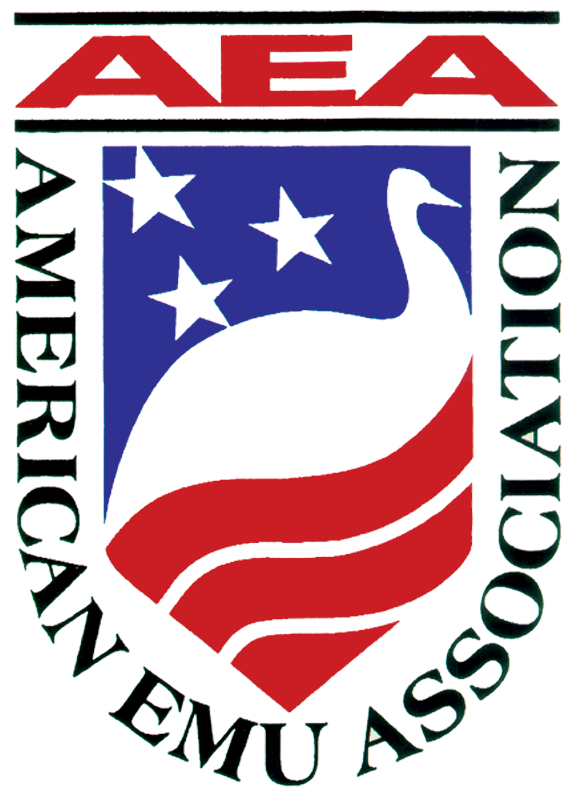A DNA test to sex ratite birds.
DNA-based sex tests now exist for many avian species. However, none of these tests are widely applicable to ratites. We present DNA sequence data for a locus that is W chromosome-linked in the kiwi, ostrich, cassowary, rhea, and emu. At the amino acid level, this sequence has significant homology to X-linked genes in platyfish and…
Read MoreEmu Meat
The American Emu Association (AEA) provides research findings to educate the AEA members about recent findings and advances in emu research.
Read MoreEncephalomalacia associated with vitamin E deficiency in commercially raised emus.
Thirteen of 64 emus on a commercial emu farm in Ohio exhibited neurological signs that included backward staggering, incoordination, generalized weakness, and sitting on their hocks with head retracted backward. Eight of the birds showing such signs were found dead. Two of these emus were necropsied, and no significant gross lesions were observed. Major histopathological…
Read MoreEastern equine encephalitis transmission to emus (Dromaius novaehollandiae) in Volusia County, Florida: 1992 through 1994.
From May 1992 through October 1994, sera were collected from 204 domestic emus (Dromaius novaehollandiae) at a ranch in Volusia County, FL, and tested for antibody evidence of arboviral infection. Hemagglutination-inhibition (HI) and neutralizing (NT) antibodies to eastern equine encephalitis (EEE) virus were identified in sera collected during each year. In addition, HI and NT…
Read MoreDetection of eastern equine encephalomyelitis virus RNA in formalin-fixed, paraffin-embedded tissues using DNA in situ hybridization.
Eastern equine encephalomyelitis (F.EE) virus was detected in infected formalin-fixed horse and emu tissues and in infected chicken embryo fibroblasts. Results of in situ hybridization using a digoxigenin-labeled 40-base DNA probe complementary to a conserved region of the EEE virus RNA compared favorably with results of both virus isolation and serum neutralization tests. This technique…
Read MoreResults of Emu Oil Research January 1997
Late last year I started testing some oil samples that had been supplied by Peter Thompson (Qld), John Snowden (WA) and Greg Barowski (VIC) to assist us with research into the differences in arthritis treatment in emu oil. In the last 12 months we have tested about 40 samples and have obtained some interesting results.…
Read MoreEffects Emu Oil on Auricular Inflammation Induced with Croton Oil on Mice
OBJECTIVE: To determine the acute anti-inflammatory effects of topically applied emu oil. ANIMALS: 96 male CD-l mice assigned randomly to 4 groups, each comprising 24 mice. PROCEDURE: To induce auricular inflammation, 50 microl of a solution comprising 10 microl of croton oil dissolved in I ml of acetone was applied to the inner surface of…
Read MoreEmu Oil(s): A Source of Non Toxic Transdermal Anti-Inflammatory Agents in Aboriginal Medicine
The emu (“bush chook”) is a free-roving large flightless bird indigenous to Australia, now farmed in Australia, Canada, Europe, and the U.S.A. The native Aboriginals and early white settlers in Australia rubbed on the liquid fat to facilitate wound healing and to alleviate pain and disability from various musculoskeletal disorders. An adult bird (15 months…
Read MoreAea Research Timeline Emu Oil
American Emu Association Emu Oil Research Timeline 1994 -2009 In 1988 there were 50 emu farmers in the United States. The American Emu Association was formed in 1989. Prior to 1994, all research sponsored by AEA was for emu health. Oil Research Timeline: 1994 AEA partners with Auburn University to do research on the Fatty…
Read MoreAcyl composition of muscle membranes varies with body size in birds.
The acyl composition of phospholipids from pectoral muscle of eight species of birds, ranging in size from the 13 g zebra finch to the 34 kg emu, were measured and combined with recent published results for a 3 g hummingbird. This represents an approximately 11000-fold range in body mass. Muscle phospholipids, and thus muscle membrane…
Read More